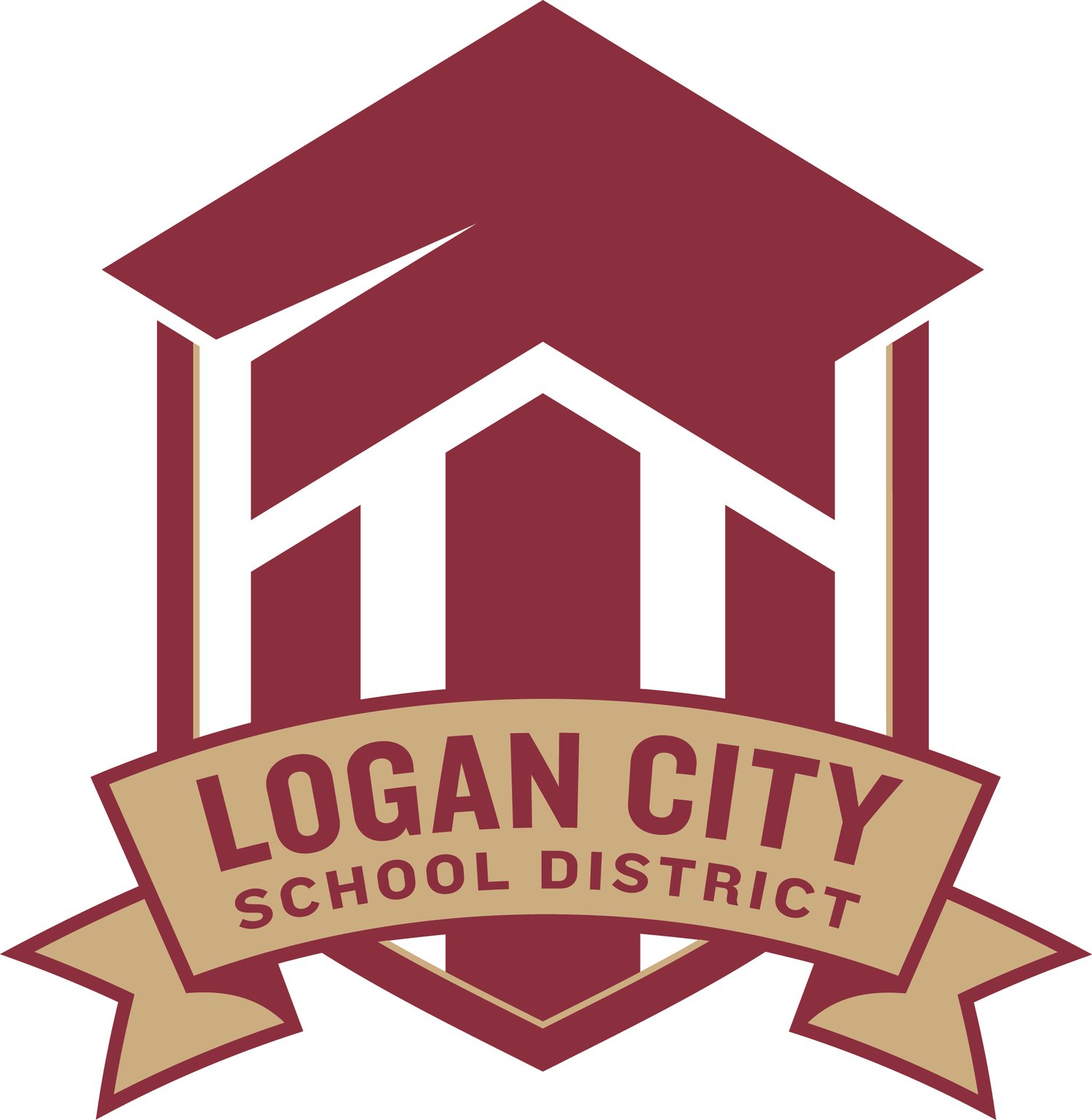Approval Date: April 12, 2019
EHH- Work-Based Learning
Purpose-
- To implement Utah State Board of Education rules which direct the Logan City School District Board of Education to implement a policy regarding work-based learning program for secondary school students
- To provide direction and establish criteria for schools as they provide work-based learning programs
Definitions-
Careful supervision- means providing training safeguards and workplace supervision according to Internship Safety agreement.
CCRP (College and Career Readiness Plan)- means a plan for each student created collaboratively with the student, counselor and parents to set goals for the future and plan out classes that provide the student with the necessary knowledge, skills, dispositions and experiences to reach those goals.
Cooperating employer- means a public or private entity which, as part of a work experience and career exploration program offered through a school, provides interns with training and work experience in activities related to the entity's ongoing business activities.
Intern- means a student enrolled in a school-sponsored internship as part of the Work Based Learning program.
Internship- means a short-term work experience that allows a student to gain practical skills and learn about an occupation. The internship can be either paid or unpaid.
Internship safety agreement- means the agreement between a public or private school and a cooperating employer, in accordance with Section 53G-7-904.1, that:
- Ensures that an adult officer or employee of the cooperating employer is not intentionally alone with an intern for any significant amount of time during the intern’s activities”
- Maintains compliance with all applicable state and federal laws relating to workplace and student safety, privacy, and welfare
- Provides a safe, educational, courteous, and welcoming professional environment that is free of harassment of discriminatory conduct that may result in a hostile, intimidating, abusive, offensive, or oppressive learning environment
Job Shadowing- means an opportunity for a student to follow an employee at a company for part(s) of one or more days to learn about a particular occupation or job assignment. It is recommended for high school students as part of career exploration activities. It may be implemented in context with a particular course of study. This is an unpaid experience and may generate work-based learning credit.
Parent(s)- means the person(s) who has legal guardianship responsibilities for the student.
School-Based Enterprise- means a business set up on a school site and run by supervised students. Students learn to apply "practical" skills in the production of goods or services for sale or use by others
Service-Based Learning- means a method of instruction which combines community service with a structured school-based opportunity emphasizing the connections between service experiences and academic learning. A student participating in a service-based learning program is referred to as a service intern.
Work Based Learning- means sustained interactions with industry or community professionals in real workplace settings, to the extent practicable, or simulated environments at an educational institution that foster in-depth, firsthand engagement with the tasks required in a given career field that are aligned to curriculum and instruction.
Worksite/Workplace- means the actual location where employment/training occurs for a particular occupation(s), or an environment that simulates all aspects/elements of that employment, for instance school-based enterprises.
Guidelines and Procedures-
Under the direction of the superintendent, school administrators are authorized to administer this policy in their respective schools. This document focuses on the work-based learning component of School-to-Careers to further define and outline approved procedures. Work-based learning opportunities may include: Job Shadowing, Internship, Serviced-Based Learning, and School-Based Enterprise.
Student Eligibility-
The College and Career Readiness Plan (CCRP) is used as a qualifying indicator for students to participate in a work-based learning experience. The CCRP indicates a student’s occupational interest and classroom preparation for a community site training experience in a selected career field. From the CCRP information, students are matched with cooperating employers; who provide at their business sites, career training experiences for the students. Eligible students participate on a space available basis.
Student Records-
The following documents must be completed and on file at the school for students participating in work-based learning:
- CCRP
- Student Application
- Training Agreement between student, parent(s), employer, and education institution
- Student Job Activities Grid and Worksite Assessment/Evaluation
- Student Work Record
- Student Evaluation
Training for Students, Student Supervisors, and Cooperating Employers regarding Health Hazards and Safety Procedures in the Workplace
- Students are informed of safety and health hazards in the workplace prior to the student leaving the school
- Students are not to be placed in training sites, except under “careful supervision,” and in accordance with the Federal Child Labor Laws
- Employers assure a safe work environment and discuss all safety issues or concerns with the Work-Based Learning Coordinator during a review of the worksite and prior to the student’s work-based learning experience
Standards and Procedures for Approval of Off-Campus Worksites-
Worksite experiences may be provided through a cooperating employer in the public sector, private sector, through service learning, or school-based enterprises.
Work-based learning may be paid or unpaid. Paid and unpaid experiences will follow guidelines outlined in the document, Occupations under the Fair Labor Sta“Child Labor Requirement in Nonagricultural ndards Act, US Department of Labor, WH-1330, revised August 1990
Adhering to the intent of the U.S. Department of Labor document,“Employment Relationship Under the Fair Labor Standards Act, WH Publication 1297, (Reprinted August 1985), an unpaid intern may not:
- Displace a regular employee
- Fill a vacancy that a new hire would normally fill
- Be given exclusive duties to the disadvantage of regular employee that would normally be assigned those duties
- Perform services that clearly bring profit to the business. Employers will assume responsibility for meaningful training
Student Transportation-
Students participating in school organized career awareness field trips are transported by school district approved carriers.
Transportation of students participating in Work-Based Learning programs to and from the work site is the parents’ responsibility (except as noted above).
Appropriate Supervision by Employers at the Worksite-
The cooperating employer/supervisor:
- Provides careful supervision at the worksite for student training
- Assumes responsibility for meaningful training
- Communicates on a regular basis with the Work-Based Learning Coordinator.
- Consults with the Work-Based Learning Coordinator regarding problems related to the work experience
- Contacts the Work-Based Learning Coordinator before considering a student’s suspension from an assigned worksite, transfer to another worksite, or termination
- Records attendance and performance of the trainee
- Meets with Work-Based Learning Coordinator to provide evaluation of trainee’s work
- Conforms to State and Federal Labor Laws
- Participates in Workers’ Compensation under which a paid trainee is covered
If an internship safety agreement is not entered into with a cooperating employer, officers and employees of the cooperating employer who will be given significant unsupervised access to a student in connection with the student's activities as an intern shall submit to criminal background checks under Section 53G-11-402.
Insurance Coverage-
For paid work employment, work injuries, and occupation disease, insurance benefits are covered by the employer’s workers’ compensation.
For unpaid work experiences, work injuries, and occupation disease, insurance benefits are covered by local educational agency’s workers’ compensation as specified by enacted state legislation.
The determination of additional insurance coverage for the student is the parents’ responsibility.
Appropriate Involvement and Approval by the Student’s Parents(s) in the Work-Based Learning Program-
A student’s parent(s) will:
- Partner with the school, counselor, Work-Based Learning Coordinator, and student by participating in the CCRP process
- Support the student’s participation in the work-based learning program
- Determine the method of transporting students to and from the worksite
- Assume responsibility for the student’s released time from school


